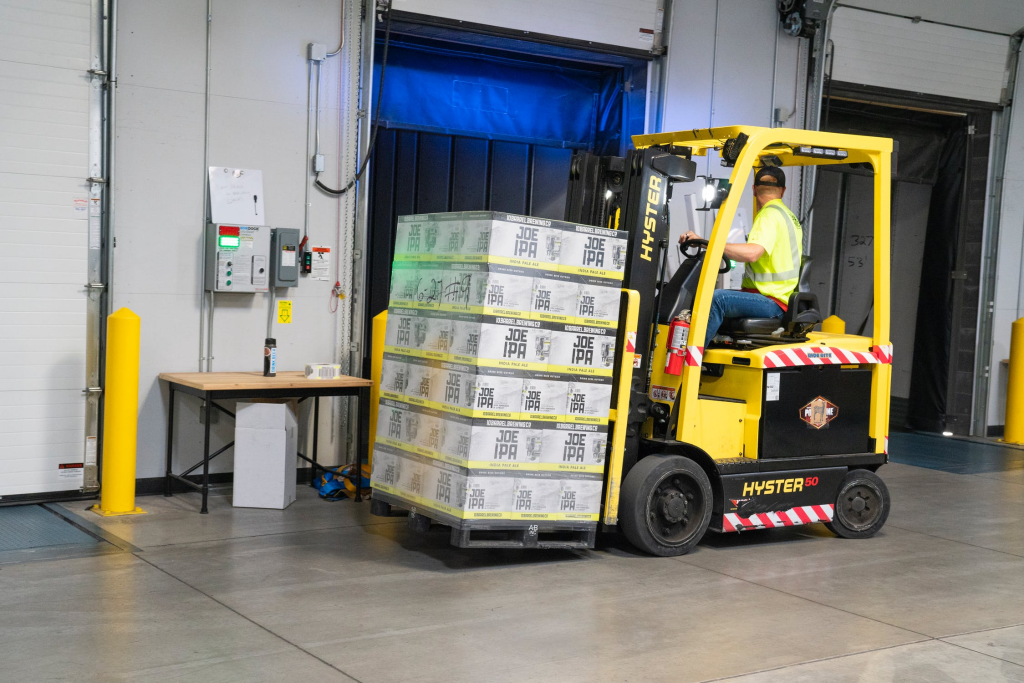
Manufacturing industries and supply chain logistics operate big machines and sophisticated software. Such processes are not in isolation. Software control machines. Interconnection of computers forms networks from one level of operation to the next.
The connection is at the human interface level, supervisory control level, and server level. Interconnection of computers makes business operations efficient.
Computer networks can also put critical software at risk of ransomware. Ransomware is a type of virus developed in 1989. Hackers send malware to your computer software and lock files, demanding money before unlocking files. Such attacks can affect the entire operating system of your computers. It can also encrypt individual files.
HOW CAN RANSOMWARE AFFECT SUPPLY CHAIN LOGISTICS AND MANUFACTURERS

Ransomware criminals are on the rise. They are targeting highly sensitive businesses like big logistics companies. Supply chain logistics involves transporting goods from one point to another. Some of these goods can be sensitive, such as the movement of cold storage items.
Losing time or lack of access to systems can cause severe business disruptions. This is risky, especially if these companies handle such sensitive commodities.
Attackers look for vulnerable companies that can afford the ransom. Big manufacturing companies suffer business disruptions and considerable losses from ransomware attacks. Here are the causes of such attacks.
1. LOSS OF MACHINE CONTROL AND VIEW
Malware can access software responsible for controlling machines and encrypts files. An encrypted file is damaged and cannot function well.
A malware attack causes the computer-human interface to malfunction, and graphics are not visible. All image files are corrupt, and the system cannot load properly.
Corrupted files mean the software controlling machines in your company cannot work. There is a loss of machine control, and you cannot view operations. A ransomware attack can cause an abrupt factory shut down and huge losses.
2. INTELLECTUAL PROPERTY AND DATA THEFT
A breach in company systems can lead to data loss and intellectual property theft. Companies depend on the internet to share important files; employees often send documents and designs to each other. Other files such as reference documents, workflows, lists, and guidelines (which are sensitive documents), are usually stored in a company’s network for easy access.
Supply chain logistics departments and manufacturing companies store invoices, orders, vendor data, and suppliers’ information online. Dedicated software for the supply chain has a database that contains all important information.
A ransomware attack can hack into such systems and steal sensitive information. Attackers ask for money before returning the data. Other times they can sell sensitive details to competitors.
Manufacturers incur huge losses when data loss and theft happen. Intellectual property loss can lead to legal cases that take a lot of time and money.
3. REPUTATION LOSS
A data breach can cause personal customer information to end up in the wrong hands. Customers will not be happy, and potential customers will shun your company. Court cases resulting from intellectual property loss can cause negative publicity. A malware attack can damage your reputation and hurt your image.
WHAT MAKES MANUFACTURING COMPANIES VULNERABLE TO MALWARE RISKS?

Image from pexels.com
Attackers can trick people using sensitive systems to install malware. A common method for attacking a system is phishing. Some attackers have technical skills. They can use remote desktop protocol (RDP) to install the malware in your system. They scan your company’s systems and attack if it has the following vulnerabilities.
1. Insufficient Internet protection
Lack of a viable residential proxy to protect your IP addresses on the internet can pose a risk to your manufacturing company. Open IP addresses are an access point to ransomware attackers. A residential proxy can help secure your work online.
A proxy server makes sure you do not use your IP address. Instead, your company uses a proxy IP address. This makes it hard for attackers to reach your company’s emails. Some emails may be vulnerable to phishing or spoofing.
A proxy server protects your company’s server. A company’s server is a computer that processes vital documents. For example, you can edit, send, or receive manufacturing programs, design documents, and blueprints. It stores sensitive configurations for creating a final product and robot codes. An attack on your server means you lose critical business data.
A residential proxy server offers a layer of protection against such losses. Proxies operate between you, as a client, and the internet.
Any request you send to the internet must go through the server for analysis. This is before it reaches the internet. Likewise, any response coming from the internet must go through a proxy server. This is before it reaches your sensitive manufacturing systems.
This mechanism helps secure your internet ports, identify malware and stop any suspicious files from accessing company systems. Residential proxy servers help keep your sensitive company files safe.
2. THIRD-PARTY SUPPLY CHAIN AND LOGISTICS COMPANIES
Many cyber attacks originate from the supply chain. A big company that relies on third-party supply chain logistics is at risk of a ransomware attack. You need to pay attention to your security and the security of your suppliers.
Small and medium-sized logistic companies that supply big manufacturing companies may not have adequate cybersecurity. This may be due to a lack of knowledge or training on carrying out strong cybersecurity measures. Lack of such measures makes third-party suppliers vulnerable to malware attacks. It puts your manufacturing company at risk.
HOW TO MITIGATE RISKS IN THE MANUFACTURING INDUSTRY
Ransomware continues to evolve. Attackers are discovering new ways of penetrating systems. Ransomware as a Service (RaaS) is one of the outsourcing methods criminals are using.
RaaS is more dangerous as it requires less technical knowledge, and more attackers can use it. Here is what business executives can do to reduce risks in manufacturing industries.
- Secure manufacturing networks using standard best practices in security
- Carryout all best practices in securing networks without interfering with the production
- Proper monitoring and identifying incoming and outgoing traffic
- Invest in an integrated monitoring system
1. SECURE ENDPOINTS
Secure all internet access points. Check endpoints and install an effective antivirus. Beyond installing an antivirus, check the hygiene of your company’s endpoints. Look at the configuration and check the patching. Consider using a security program that will provide advanced access point security.
For example, a next-generation antivirus called NGAV or an endpoint detection program (EDR) will reinforce security. Such programs can detect suspicious behaviour that can lead to a ransomware attack.
2. UNDERSTAND YOUR COMPANY’S IT SYSTEMS
Know where sensitive information is stored in your manufacturing company. Identify the computers that process your critical data and assets. Look at how these sensitive data might be exposed or accessible to attackers.
Take proactive measures to identify defensive measures that will protect your assets. Company executives can partner with cybersecurity professionals and create a cyber-threat profile.
3. INFORMATION ACCESS MANAGEMENT
Know who can access information in your company. Employees should access information that is relevant to them. Business partners and your customers should access information that is relevant to them.
Understand the information they can access and the time they should access it. All information should not be accessible to everyone. This will help reduce the risk of ransomware attacks.
4. EMPLOYEE AWARENESS
Top managers and executives can involve professionals in training employees. Lack of employee awareness can make company systems vulnerable to attacks. Learning about common methods attackers use, like phishing, is essential. Identify employees who are more susceptible and need extra support.
5. MULTI-FACTOR AUTHENTICATION METHOD
Multi-factor authentication (MFA) is a method that offers extra security measures when accessing company emails.
Hackers can steal employee credentials using phishing, using the details to steal sensitive company information. They can lock critical data and ask for a ransom. To avoid such cases, consider adopting a 2 Factor-authentication (2FA) on all your company computers. This method makes it harder for hackers to steal employees’ emails and passwords.
6. BUSINESS CONTINUITY STRATEGY
Backup systems help you to get back to business. A ransomware attack can corrupt all your files and documents and disrupt operations. A reliable and accessible backup system can help you get back to work fast. Consider having a SaaS backup plan for fast restoration of processes.
7. PERFORM REGULAR MAINTENANCE
Keep checking your IT systems after six months. Review best practices and make adjustments. An audit will help you understand areas that need reinforcement.
CONCLUSION
The evolution of ransomware attackers puts manufacturing companies and supply chain logistics businesses at risk. Business executives should consider a top-down approach when implementing cyber defence processes. Integration of security solutions will save manufacturing companies from losing time and resources.
